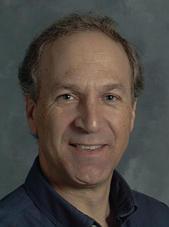
David Harel is the Dean of the Faculty of Mathematics and Computer Science at the Weizmann Institute of Science in Israel, and is incumbent of the William
Sussman Chair of Mathematics. He was Head of the Department of Applied Mathematics and Computer Science from 1989 to 1995. He is also co-founder of I-Logix, Inc., Andover, MA, and of Aromix Technologies, Ltd., and is an adjunct professorat the Open University in Israel. He received his B.Sc. from Bar-Ilan University in 1974, his M.Sc. from Tel-Aviv University in 1976 and his PhD from the Massachusetts Institute of Technology in 1978. He has spent two years at IBM's Yorktown Heights research center, sabbatical years at Carnegie-Mellon and Cornell Universities, and summers at IBM, Lucent Technologies Bell Labs, DEC and NASA.
His research interests are in computability and complexity theory, logics of programs, theory of databases, automata theory, visual languages and systems engineering, and he has published widely on these topics. He is the inventor of thelanguage of statecharts (1983; see also the more recent 1997 and the 1998 book), and was part of the team that designed the Statemate (1984-1987) and Rhapsody(1997) tools. He is also interested in the communication and synthesis of smell.
In 1994 he gave a 13-lecture exposition of computer science on Israeli radio, and in 1998 he presented a 14-program series on Israeli television, in which he hosted
prominent computer scientists on a variety of topics. He has received a number of awards, including ACM's Karlstrom Outstanding Educator Award in 1992, and the 1997 Israeli Prime Minister's Award. His book, Algorithmics: The Spirit of Computing (Addison-Wesley, 1987, 2nd. edn. 1992) was the Spring 1988 Main Selection of the Macmillan Library of Science. He is a Fellow of the ACM and of the IEEE.
High-level modeling of complex reactive systems raises rather serious problems in specifying behavior. This is true both when working within either the Structured Analysis paradigm (SA) or the Object-Oriented one (OO). In the latter case, classes represent dynamically changing collections of concrete objects, and behavioral modeling must address issues related to their creation and destruction, the delegation of messages, the modification and maintenance of relationships, aggregation, inheritance, etc. All this has to be done so that the models remain intuitive and well-structured, but are also behaviorally expressive and rigorous, supporting full executability and dynamic analysis, as well as automatic synthesis of usable code in languages such as C or C++. The talk will center on statecharts and message sequence charts as the means for specifying behavior and on the Staemate Magnum and Rhapsody tools implementing them. In particular, an extension of MSCs, termed live sequence charts (LSCs; work joint with W. Damm) will be presented. We will discuss some of the misconceptions among practitioners and methodologists, as well as some central challenges for the future.